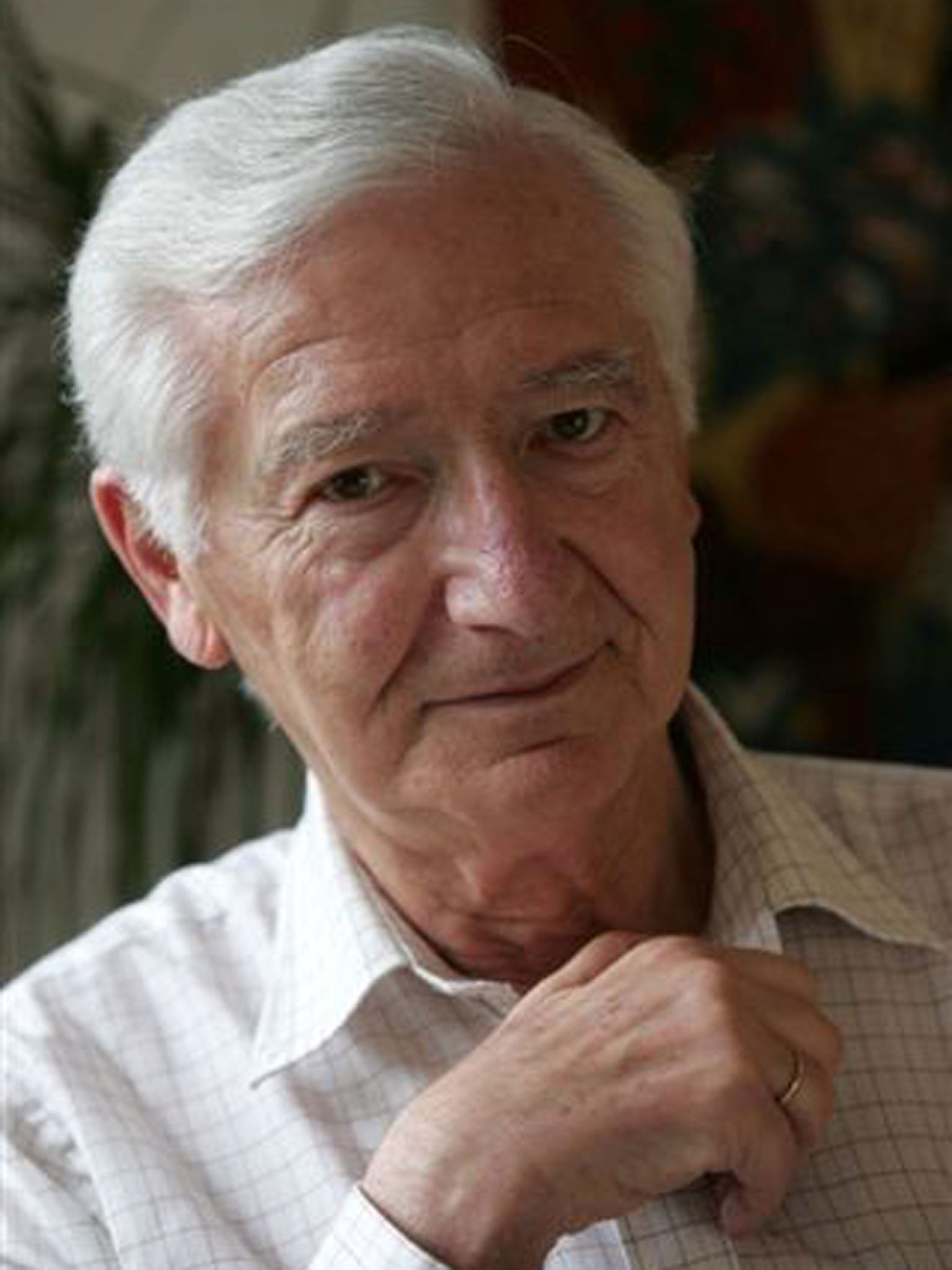Peter Zollman: Scientist who worked on the Channel Tunnel and translated into English the verse of his native Hungary

When the two ends of the Channel Tunnel met in 1990, the moment was marked by a shaking of hands between a construction worker from France and one from England, followed by a mutual crossing of hundreds of workers. The man who enabled that meeting to take place through the production of special laser guidance equipment was Peter Zollman, a Hungarian refugee from the 1956 revolution, who was only 25 when he arrived in England with a degree in electrical engineering and who went on to win three Queen's Awards for technological innovation and export in the industry.
That meeting between the two halves of the tunnel is symbolic of much of Zollman's life, in that he was a polymath whose work encompassed both science and art; and that art, in turn, brought together the literatures of Hungary and England. His early and late life joined too, since he spent the best part of it in forms of electronic and laser engineering and the last entirely in the service of Hungarian literature, winning praise and prizes for both endeavours. He was quiet and modest about his achievements, and intensely serious about his work.
Peter Zollman was born in Budapest in 1931, the son of a successful small businessman. His parents were secular Jews who converted to Roman Catholicism in 1937 but, as with all such conversions, it did little to protect the family, which was herded into the ghetto seven years later. While his father was deported but survived, Zollman himself was saved by a Swiss protective passport. After the communist takeover following the war, his father's pre-war success counted against him. Zollman's personal ambition was to become a stage director, but he was designated a class alien and, barred from his preferred area of study at university, was steered into engineering. Once qualified, he had to work in industry because his university appointment as a lecturer in electromagnetic theory was disallowed by the Communist Party. In 1956, he took an active part in the Hungarian revolution through his trade union, and eventually joined the flood of refugees across the Austrian border.
On arriving in England he was soon employed at Imperial College as a research assistant to the Nobel prize-winning inventor of the hologram, Dennis Gabor. There he devised a novel collimator for use in cathode ray tubes, which became the subject of his PhD, but he left the university because of its hierarchies, internal politics and the persistent pressure to publish.
Aged 25 he started work as technical director, first in a machinery factory, then for De La Rue, before setting up his own company, Zed Instruments in 1973, at the start of the three-day week. This is where he carried out work on lasers for tunnels that informed not only the Channel Tunnel but also the Cern Large Hadron Collider. The three Queen's Awards followed, the third on his retirement in 1990.
At that point Zollman dropped engineering and returned to his first love, Hungarian literature, love of which had been encouraged by his time in the Hungarian pre-communist scout movement where some of his deepest and longest friendships were formed. He set to work as a translator with a devotion and intensity that dwarfs those of most. He was already extremely well read in English literature, but his first task was to accustom himself to working from the inside with English verse, no simple task, but as he went on, his ear for poetry in his second language improved until he could hear both Hungarian and English texts with equal facility. The twin tunnels of the two literatures were to meet in him through sheer application.
As a translator of poetry he strongly believed in sustaining the form, and following rhyme and metrical patterns, according to Hungarian practice. At a time when most anglophone translators were taking care to distinguish form from content, regarding form as a kind of untranslatable decoration, this will have seemed a utopian task, and harder still for someone whose ear was trained in Hungarian, since the subtleties of register and reference of the original were bound to carry an almost oppressive wealth of meaning.
Despite this, he was remarkably productive and became highly celebrated. He won a major prize in the Stephen Spender poetry translation competition in 2007, was twice shortlisted for the Weidenfeld prize, and had his translations read and performed at the Edinburgh International Festival and in an English National Opera production of Bluebeard's Castle. His translation of the Hungarian ballad "The Bards of Wales" by the great 19th-century poet Janos Arany was set to music by Welsh composer Karl Jenkins, and in his last year Zollman was awarded the Knight's Cross medal by the Hungarian government.
He translated across historical periods, published many books and is represented in many anthologies. Speaking at least six languages, he was knowledgeable about not only science and the arts but also about philosophy and international relations. His death is a great loss to Hungarian literature in translation. He was also a committed family man, and is survived by his wife, Denise, and his daughters, Catherine and Ann.
GEORGE SZIRTES
Peter Zollman, scientist and translator: born Budapest 14 June 1931; married 1961 Denise (two daughters); died Bristol 3 December 2013.
Join our commenting forum
Join thought-provoking conversations, follow other Independent readers and see their replies
Comments